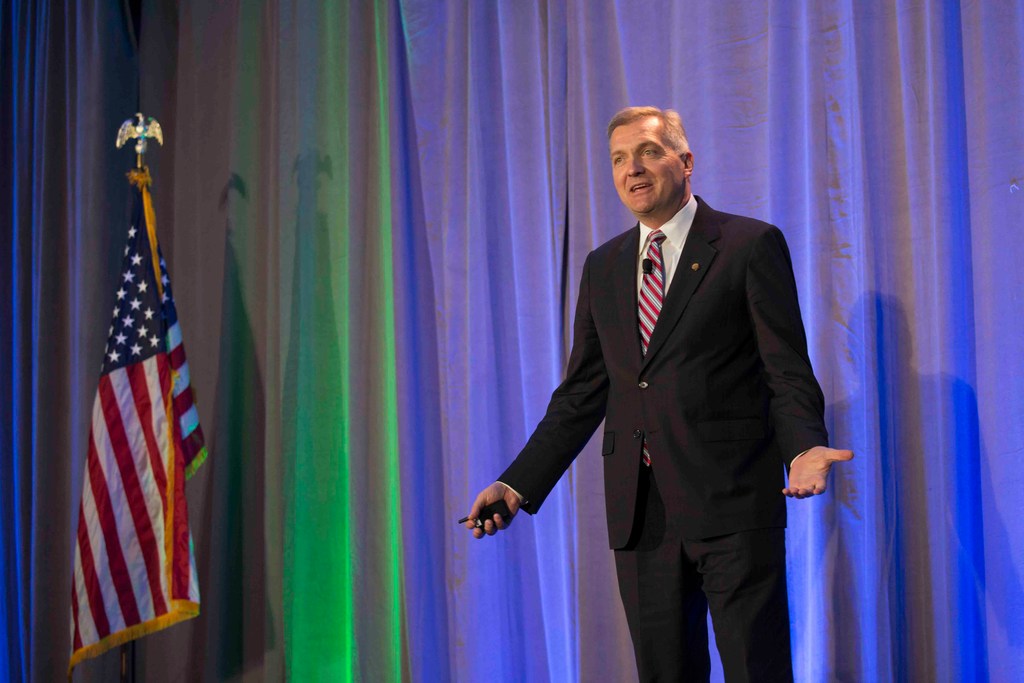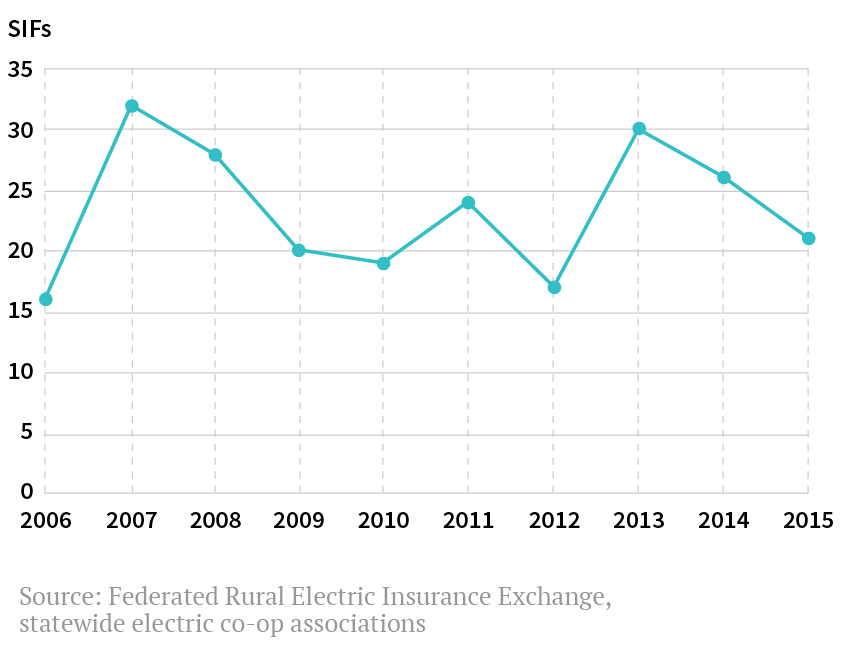
ATLANTA—Northfork Electric Cooperative’s Heath Martin survived a 7,200-volt shock, and he’s the first to admit the accident was his fault.
Martin and his co-worker, Chad Crompton, had worked all night but were then called to a routine outage near the Sayre, Oklahoma-based co-op.
On Martin’s mind was an upcoming fishing trip with his buddies. “I was in a hurry, but it was no reason to take a shortcut,” said Martin, who suffered severe burns to his hands and face resulting in skin grafts, multiple surgeries and physical therapy.
Remarkably, Martin retooled his career at the co-op and as its safety director talks about his experiences. “Grounding that line down would have taken me maybe five minutes at the most and…I just made a bad decision that day.”
That fateful day was nearly two decades ago. Today, the number of serious injuries and fatalities (SIFs) among co-op lineworkers remains stubbornly high even though the overall injury rate has fallen. A nationwide survey of 51,000 co-op employees conducted annually between 2006 and 2015 found an average of more than 23 SIFs each year.
Contact with energized lines and equipment caused more than 40 percent of the incidents.
It’s a trend that safety leaders across the country want to stop through Commitment to Zero Contacts, an initiative of NRECA and Federated Rural Electric Insurance Exchange launched at the 2018 Safety Leadership Summit. The voluntary initiative provides field guides, a downloadable job briefing app and other resources to help eliminate injuries by electrical contacts.
Serious injuries and fatalities for co-op lineworkers
The factors that increase the likelihood of SIFs vary, but creating a strong culture of safety helps mitigate the risk at all levels of an organization, NRECA CEO Jim Matheson told safety professionals April 27.
“If you have a strong organizational culture, it creates better teamwork, improves communications and reduces injury rates,” said Matheson.
“Those electric cooperatives that are top performers in this area keep a close eye on cultural aspects of their organization. They measure it and never lose sight of it,” said Matheson. “They intentionally onboard new employees into that culture with a sharp focus on safety. They’re always looking for potential gaps in that culture and, above all, are always looking for ways to strengthen that culture.”
Typically, the worst accidents happen during routine jobs where risk awareness declines and complacency is most likely to occur, said Bud Branham, NRECA director of safety programs.
Combined with people’s natural instinct to favor the “fast brain” even during situations that require analytic thinking and reasoning, the factors can lead to deadly consequences.
“Research shows that you can have the best injury rates in the world, but you can still fall victim to a catastrophic incident. We must all remain focused,” said Branham, adding that persistent SIFs are an industry-wide problem.
Commitment to Zero Contacts suggests that co-ops avoid a “bad cop” mentality and instead focus on a systemwide approach that helps them:
- Clarify and define life-saving rules.
- Verify use of life-saving rules.
- Create effective job planning on all jobs.
- Form a structured safety management process.
- Seek employee involvement.
“When you change attitudes, there will be a lot of naysayers. It’s a tough job. But this is doable,” said Phil Irwin, president and CEO of Federated. “We have the tools and the training.”
Already, co-ops are pledging to work safer and smarter. At least 30 percent of Federated members have downloaded the smartphone app, S.A.F.E. (Stop and Focus Everyday).
The three-day Safety Summit also featured 20 “safety improvement talks” from co-ops with innovative safety ideas and stories. Among them:
- Clarifying organizational roles and responsibilities for safety at the Merom Generating Plant operated by Hoosier Energy in Bloomington, Indiana.
- Engaging employees in the “I Will” pledge program at the North Carolina Association of Electric Cooperatives in Raleigh.
- Creating an effective incident management system at Cooperative Energy in Hattiesburg, Mississippi.
Co-op leaders can make the commitment to join the nationwide initiative at cooperative.com/ZeroContactsForm.
